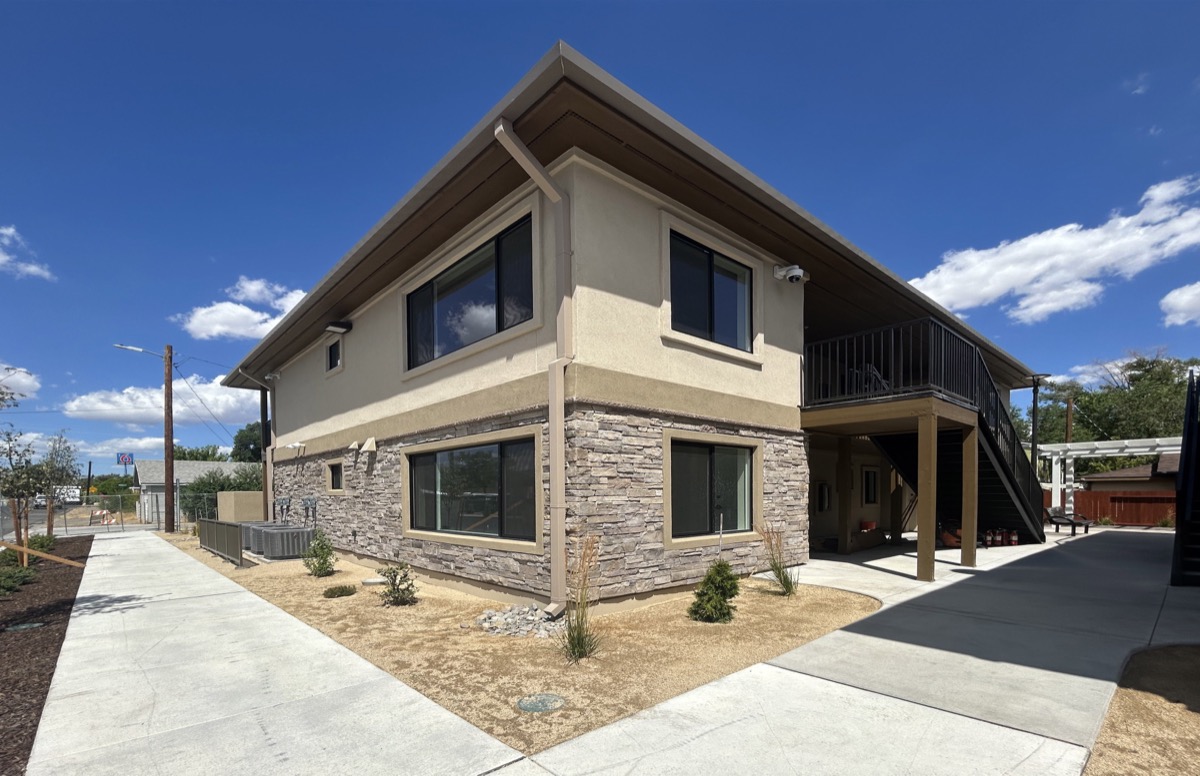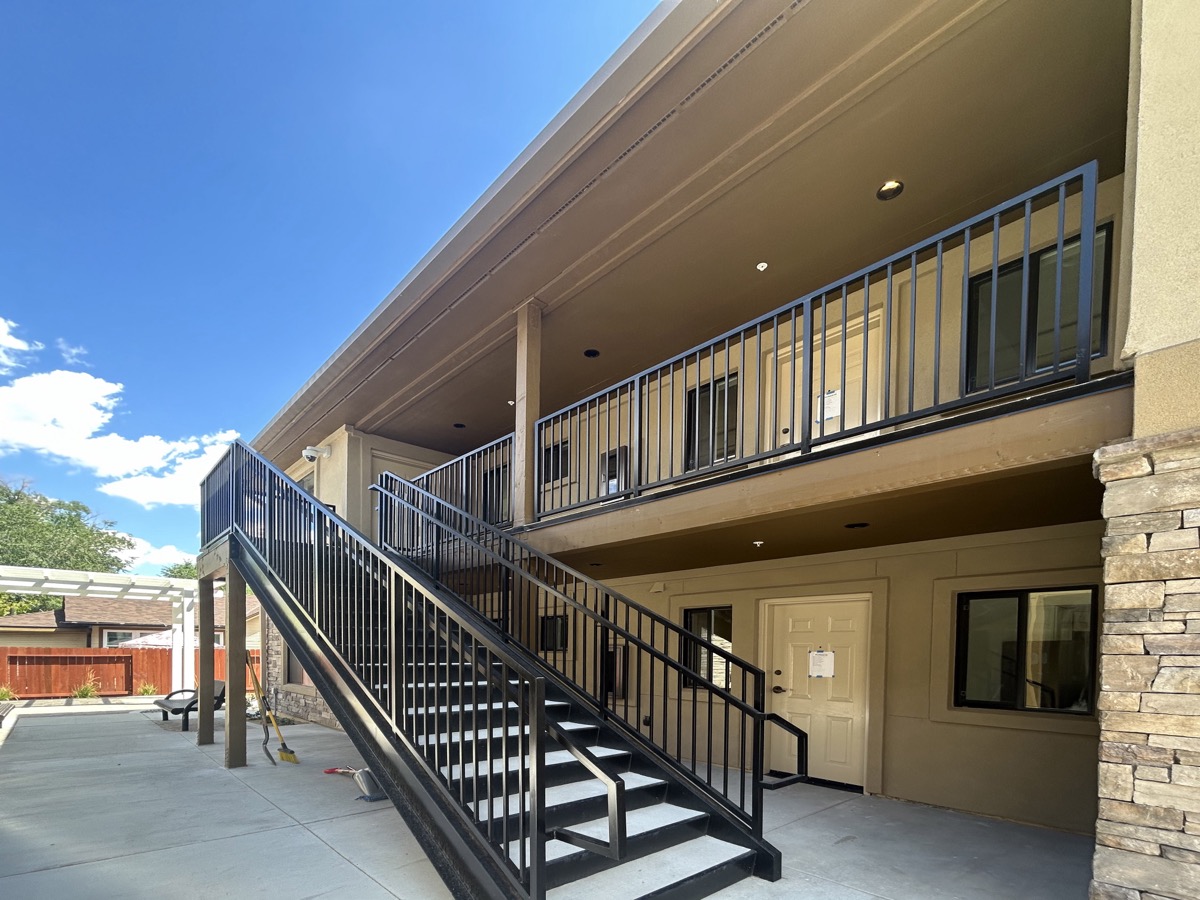
Dick Scott Manor is a newly constructed infill project aimed at providing stable housing for unhoused veterans in the Reno area. Completed in July 2024, this permanent supportive housing initiative became possible through strategic partnerships, available land, and a responsive approach to veterans' needs.
The Reno Housing Authority (RHA) has long been involved in addressing homelessness in Washoe County. The Reno Housing Authority (RHA), in collaboration with the Veterans Administration (VA), recognized several challenges in delivering services under the existing scattered-site model. This model relied on private landlords and often stretched VA workers thin across different city areas, making it difficult for case managers to effectively engage with unhoused veterans.
To address these challenges, RHA proposed a purpose-built permanent supportive housing model and secured an infill site at 1035 E. 8th Street in northeast Reno which was donated by the City of Reno. “Removing the cost of the land on these smaller developments really made a difference and helped the rest of the financing to come together,” shared JD Klippenstein, Director of Development at RHA.
The $5 million project budget was supported by a $3 million grant from the City of Reno through their ARPA recovery funds, a $200,000 grant from the Home Depot Foundation dedicated to veterans' projects (the first in Washoe County), and a $1.6 million grant in ARPA recovery funds from the State of Nevada, through their Home Means Nevada Initiative. Additional funding included a deferred developer fee from RHA and building and sewer connection fee waivers from the City of Reno.
 The project will offer 12 units of studio and one-bedroom apartments as permanent supportive housing for veterans, designed to accommodate individuals with extensive histories of homelessness. All units will have a project-based HUD-VASH voucher to ensure deep affordability and case management provided in partnership with the VA, ensuring verification of status, compliance, and referrals directly from their system.
The project will offer 12 units of studio and one-bedroom apartments as permanent supportive housing for veterans, designed to accommodate individuals with extensive histories of homelessness. All units will have a project-based HUD-VASH voucher to ensure deep affordability and case management provided in partnership with the VA, ensuring verification of status, compliance, and referrals directly from their system.
The smaller size of the project will help to keep social service costs manageable compared to larger developments reliant on tax credits. It also allows for a more efficient use of resources, with one dedicated VA case manager able to spend significant time on-site, enhancing client support.
Traditional funding models wouldn't have worked for this project. Significant grant funding from the city, state, and private philanthropy made this project pencil and collaborating with the VA to fully leverage the HUD-VASH program ensured that the project could provide deep affordability and supportive services well into the future. This isn’t the kind of affordable housing project you see often, but we know that it is going to have a positive impact in our community and are proud of all of the work that has gone into it.
Looking ahead, RHA aims to expand project-based vouchers and hopes Washoe County will continue leading in comprehensive care for households experiencing or at risk of experiencing homelessness.